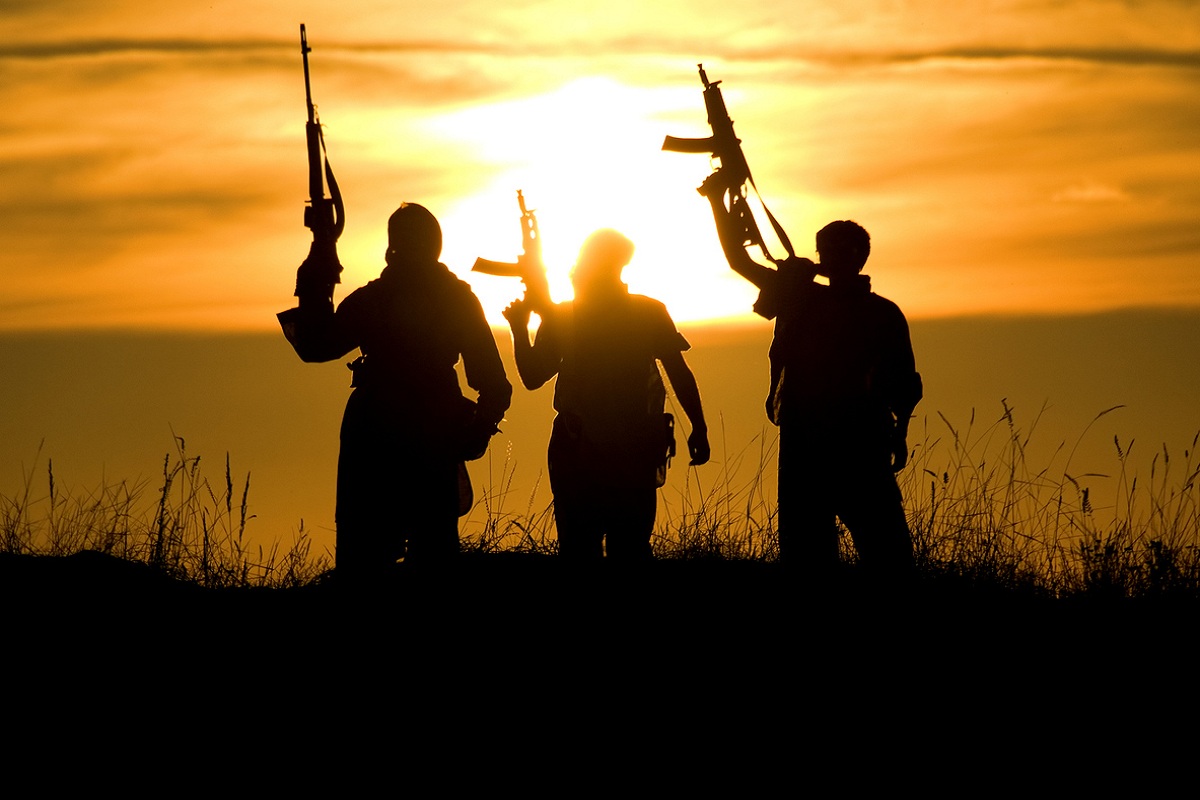‘Operation Brahma’: India sends two C-17 aircraft, more relief aid to quake-hit Myanmar, says MEA
In total, five flights providing relief material from India have arrived in Myanmar, MEA Spokesperson Randhir Jaiswal said.
They agreed that the expansion of terrorist propaganda, recruitment and fundraising efforts, have serious security implications for the region and, therefore, a collective and coordinated response was essential.
Statesman News Service | NEW DELHI | December 6, 2022 6:27 pm

(Representational Image; Source: iStock)
India and the five Central Asian countries condemned, in the strongest terms, all forms and manifestations of terrorism and underscored the need to work collectively to fight the menace.
They agreed that the expansion of terrorist propaganda, recruitment and fundraising efforts, have serious security implications for the region and, therefore, a collective and coordinated response was essential.
Advertisement
”The misuse of new and emerging technologies, arms and drugs trafficking, using terrorist proxies for cross-border terrorism, abuse of cyberspace to spread disinformation and unmanned aerial systems present new challenges in counterterrorism efforts and call for collective action,” said a joint communique issued by them after the first India-Central Asia meeting of National Security Advisers and Secretaries of Security Councils.
Advertisement
National Security Adviser, Ajit Doval, presided over the meeting attended by security Czars of Kazakhstan, Kyrgyz Republic, Tajikistan, Uzbekistan and Turkmenistan.
The six countries also discussed the current situation in Afghanistan and its impact on the security and stability of the region. They reiterated strong support for a peaceful, stable and secure Afghanistan, emphasising respect for its sovereignty, unity and territorial integrity and urging non-interference in its internal affairs.
They emphasised that the territory of Afghanistan should not be used for sheltering, training, planning or financing any terrorist acts and reaffirmed the importance of UNSC Resolution 2593 (2021), that no terrorist organisations including those designated by the UNSC Resolution 1267 should be provided sanctuary or allowed to use the territory of Afghanistan.
They also noted the current deteriorating humanitarian situation and the need to jointly act to provide humanitarian assistance to the people of Afghanistan.
The six security czars reiterated that greater connectivity could be a force multiplier for enhancing trade and commerce as well as closer interactions between India and Central Asian Countries and accordingly deserved priority attention.
They agreed that the connectivity initiatives should be based on the principles of transparency, broad participation, local priorities, financial sustainability and respect for the sovereignty and territorial integrity of all countries.
They emphasised the important role that Chabahar Port played during the humanitarian crisis in Afghanistan and its immense potential in enhancing trade and connectivity, as well as the logistics infrastructure of the Central Asian countries in the delivery of humanitarian goods to the Afghan people by international organisations.
Advertisement
In total, five flights providing relief material from India have arrived in Myanmar, MEA Spokesperson Randhir Jaiswal said.
Acting as a first responder, India on Saturday launched ''Operation Brahma'' to assist the people of neighbouring Myanmar, which was rocked by a massive earthquake on Friday.
Amid speculation on whether the US administration will impose reciprocal tariffs on India, President Donald Trump has heaped praise on Prime Minister Narendra Modi, describing him as a "very smart man" and a "great friend."
Advertisement
